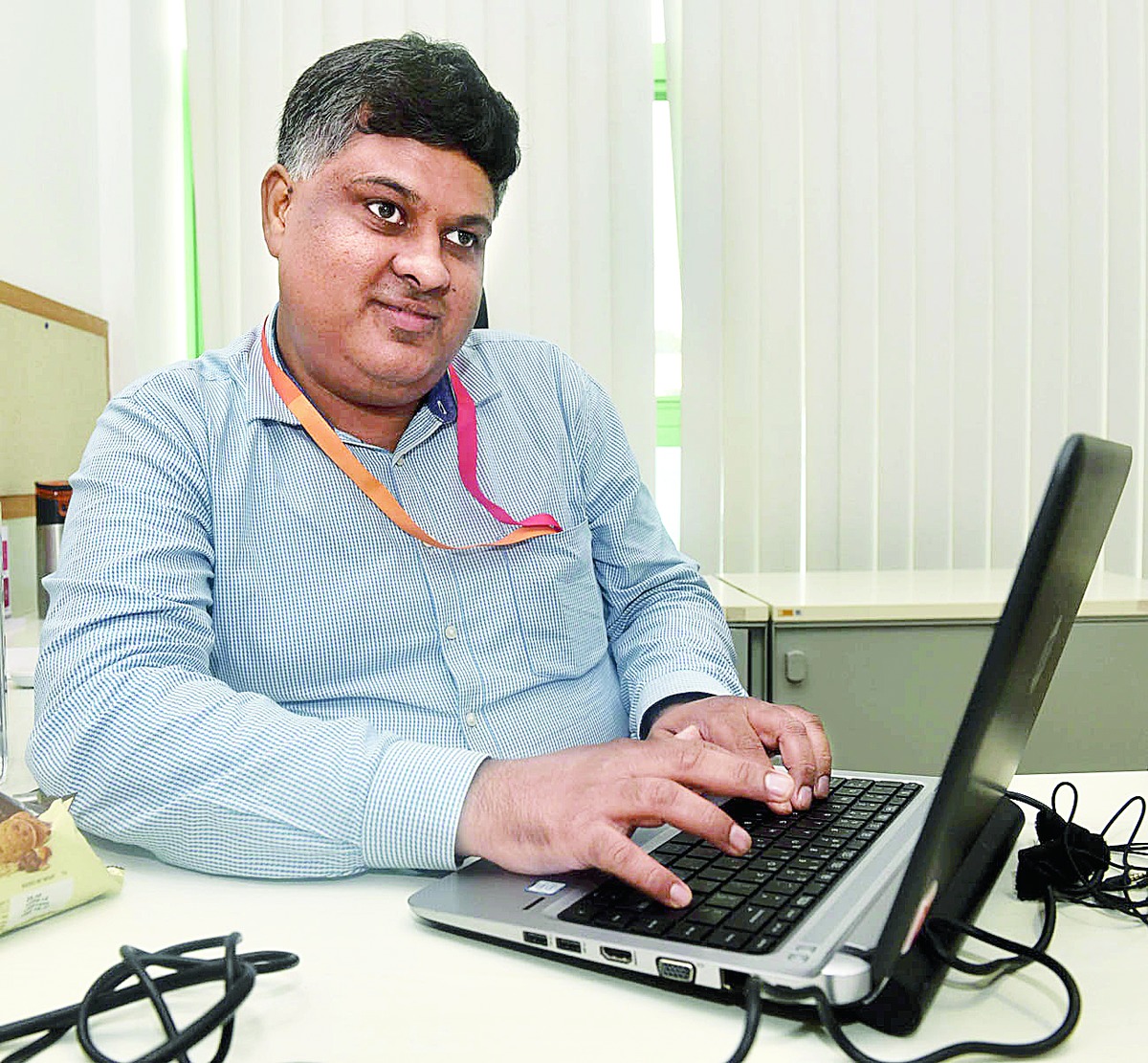Kolkata, WEST BENGAL:
Bouncing back from adversity with indomitable resilience and willpower, Asif Iqbal helps others with disabilities as he pushes the limits. Ejaz Kaiser shares his story.

Chhattisgarh :
A life well lived is a life worth talking about. With complete vision loss, Mohammed Asif Iqbal’s life can force anyone to rethink disability.
A Kolkata resident, who had a successful stint in Central government’s smart city projects for digital inclusion initiative at Nava Raipur in Chhattisgarh, Iqbal (46) had partial vision loss since birth due to a genetic disorder called retinal degeneration. By the time he turned 16, he had turned completely blind.
He moved to the United States and managed complete his high school and partial college education in Oregon, USA. Iqbal returned to India in 1995 to later become the first visually challenged commerce graduate of St Xavier’s College Kolkata and got his MBA in human resources from Symbiosis Institute, Pune.

Around six years back, he was diagnosed with high blood pressure. Having given a choice to either change his lifestyle or be on medicines all his life, Iqbal decided to lead a life worth living. “I thought my health shouldn’t be a hurdle towards my contribution to nation-building. Just the thought of doing something to ensure I remain healthy. I was overweight. I began visiting the playground and park with the help of friends. It was there the idea clicked to participate in marathons and began preparing for the race to build my confidence”, Iqbal said.
Running became a routine; starting from 100 metre, he increased the length slowly to 300 and later to a few kilometres with the support of volunteers. Gradually, he learnt navigation on his own.
“I was competing with myself to enhance my performance”, he added. Since 2021, Iqbal has run 10 km each on 12 different races and has also been recognised by former Indian cricket skipper master blaster Sachin Tendulkar for his brave initiative.
But his biggest moment came on December 18, 2022 when he accomplished TSK-25 km (15.53 miles) marathon run in Kolkata only through voice guidance. He was blind-folded and had zero physical touch or physical assistance from anyone. He set a record and entered into Asian Book of Records, as the first Indian Asian blind runner to complete a marathon in 3:32 hours with voice navigation support from Dibyendu Mondel and Prakash Singh who piloted his run.
“While I run on voice guidance (talking GPS) issued by fellow buddy runners who run at the same speed, the mission of 25km marathon in Kolkata was well achieved,” Iqbal said.
He is also the recipient of a national award, West Bengal state role model award and the extraordinary citizen of Kolkata award among others.
During his career spanning over 15 years, he has designed and implemented social inclusion strategy for AADHAR enrollment, accessible income tax, and accessible telecom under Telecom Regulatory Authority of India (TRAI) among others.
He is presently an associate director at PricewaterhouseCoopers (PwC) India Ltd. In 2000, he filed a public interest litigation (PIL) for implementation of reservation quota in government-run universities including the IIMs and IITs.
source: http://www.newindianexpress.com / The New Indian Express / Home> Good News / by Ejaz Kaiser, Express News Service / January 29th, 2023









